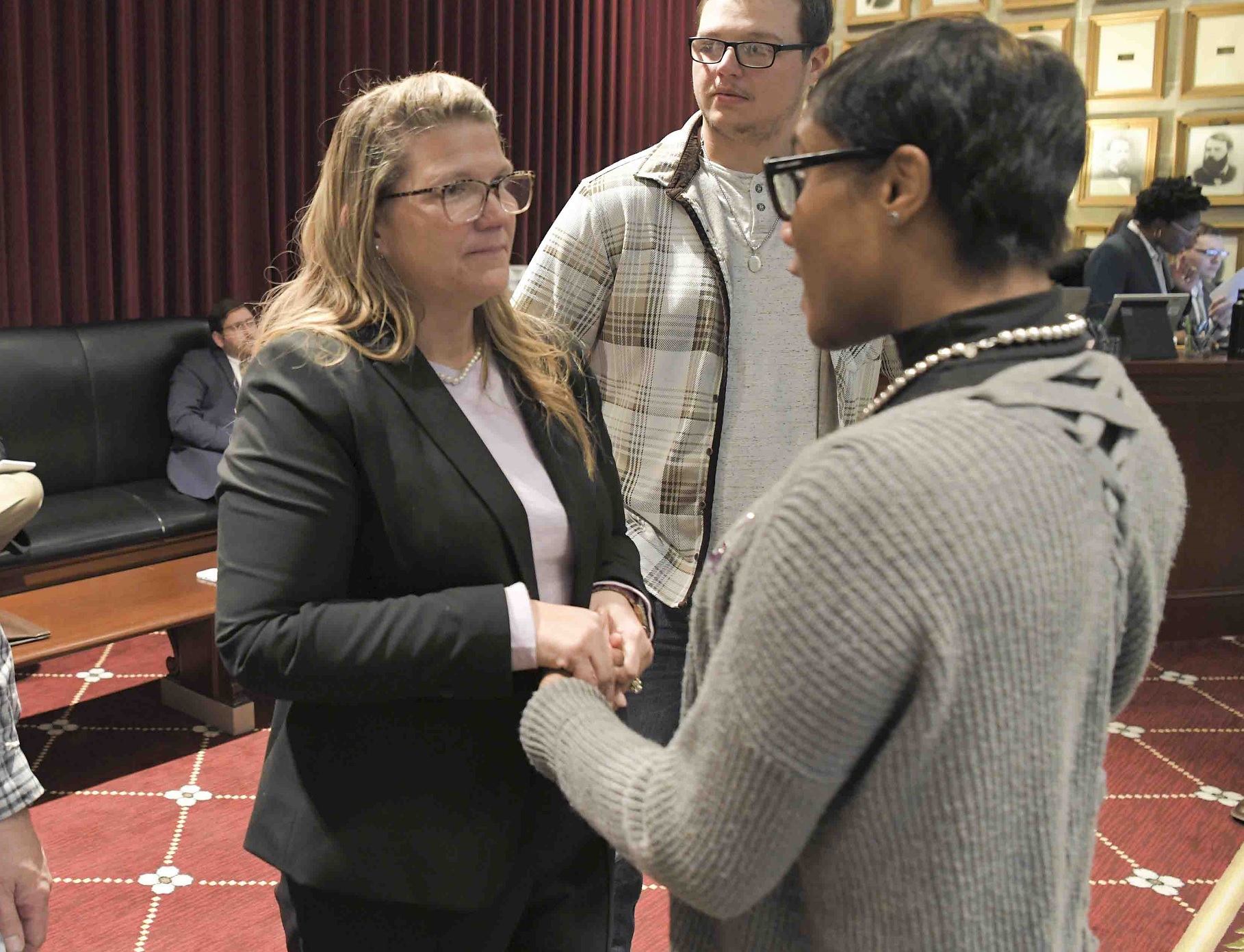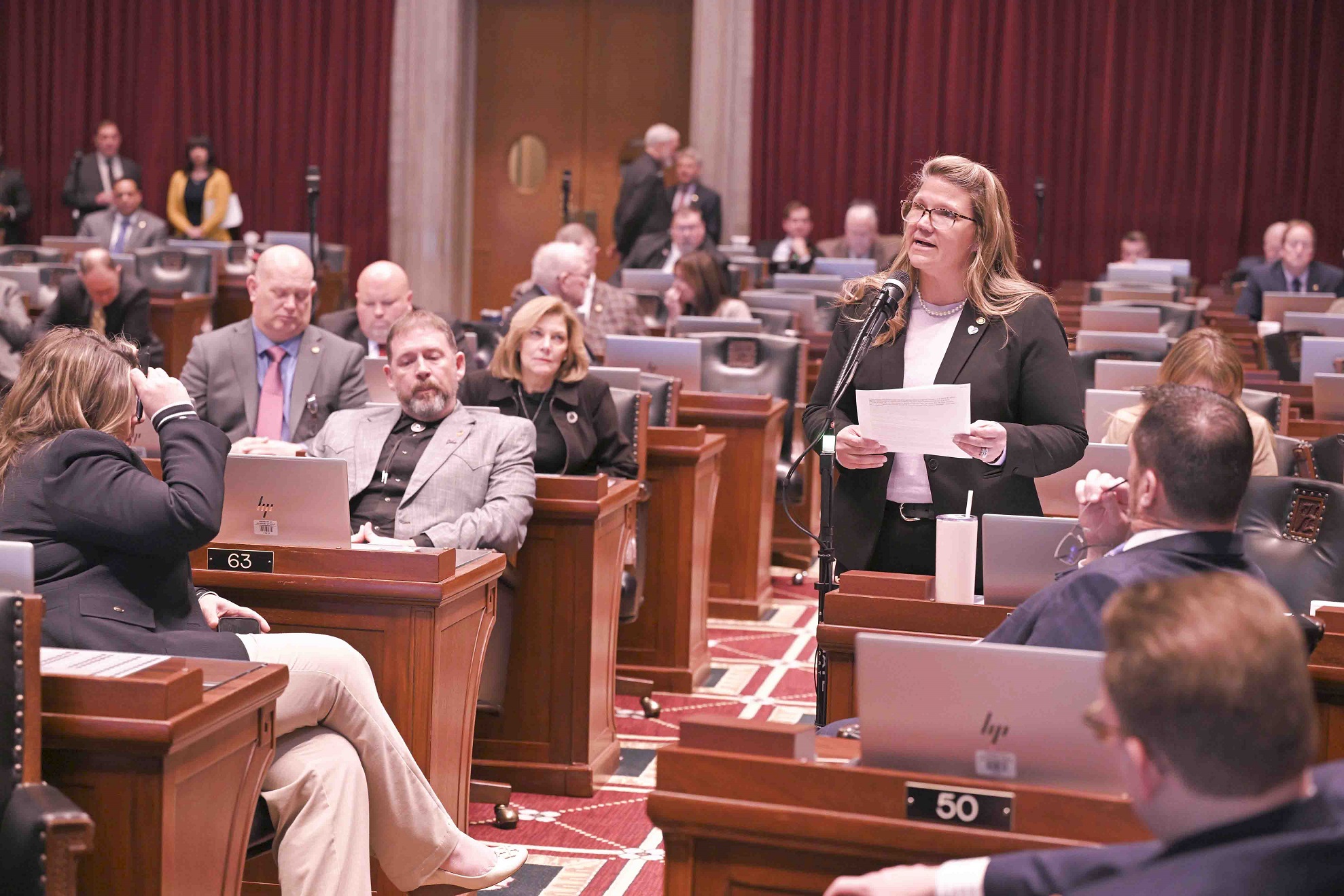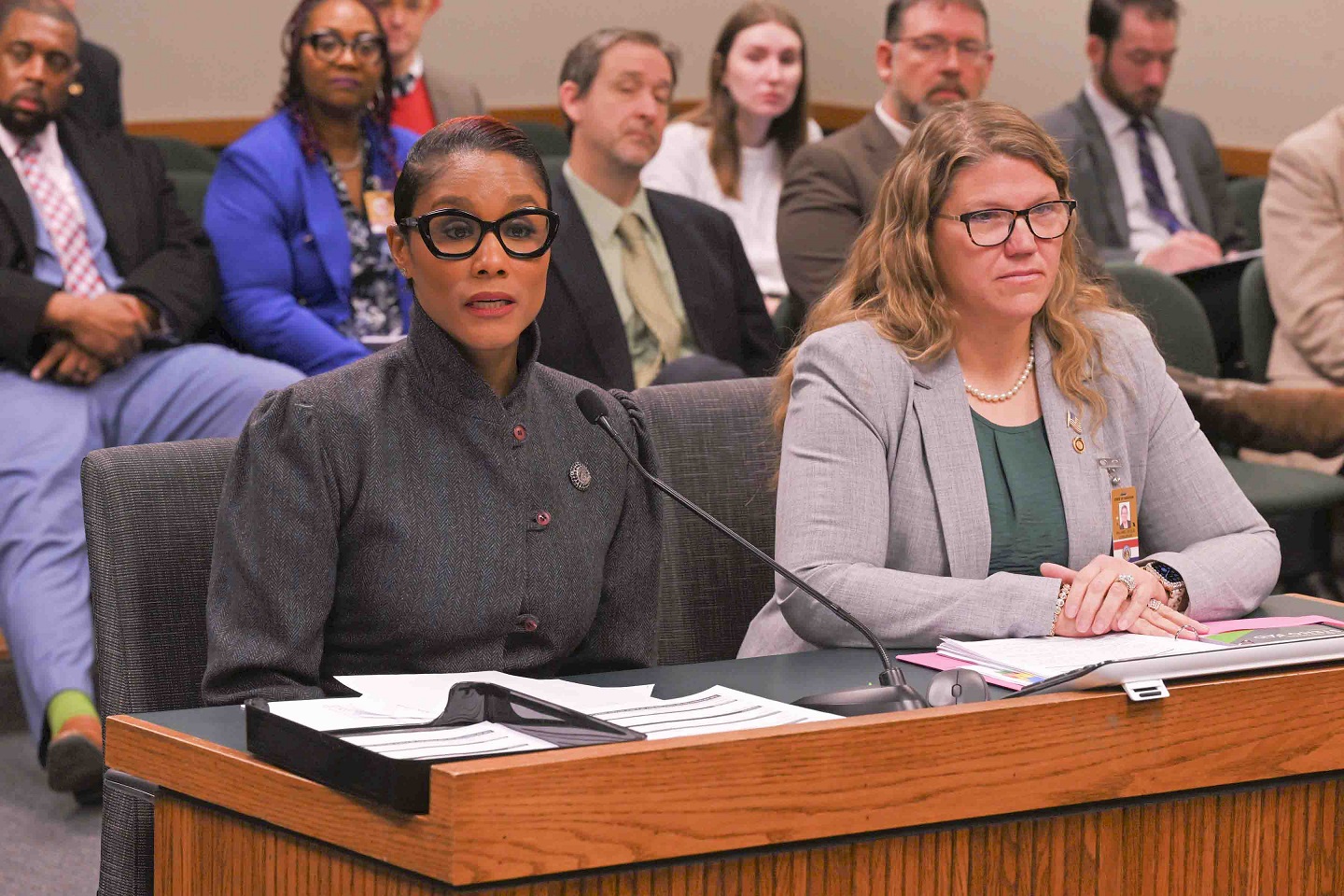Legislation that is key in the fight to protect victims of domestic violence was one of the proposals the House sent to the Senate before legislators went home for their spring break.
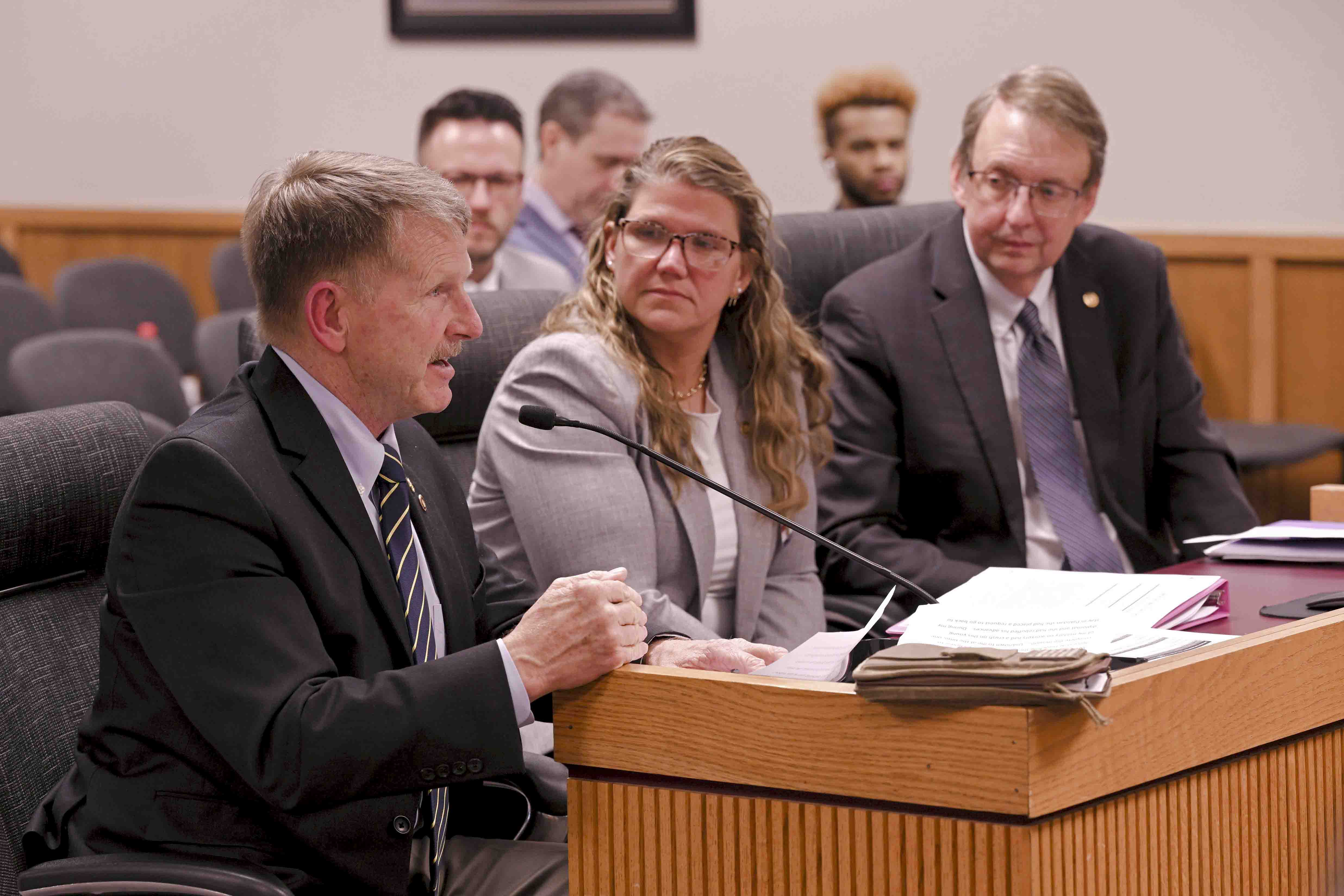
The House voted unanimously to send to the Senate a bill that would criminalize the placing of tracking devices on a vehicle without the knowledge or consent of all recorded owners of that vehicle. Missouri has no prohibition on such tracking, which is often used by domestic abusers to follow the movements of their victims.
The bipartisan legislation was sponsored by three legislators. One of those is Ditmer Republican Cecelie Williams, who filed House Bill 971. She has shared several times this session her own experience as a survivor of domestic violence, in explaining why she is carrying such bills.
Williams said Missouri should be addressing vehicle tracking in law.
Two bills similar to Williams’ were filed, and then combined with hers. One of those, House Bill 978, was sponsored by Lee’s Summit Republican Bill Irwin, a retired Navy Seal and Lees Summit Police officer. When he was presented this legislation he thought, “This is very much common sense. Who could be against it?”
Irwin said he saw firsthand the “evils of tracking,” when deployed to Pakistan as a liaison officer for the Special Operations Command Central to the U.S. Embassy.
A diplomat he worked with there was a woman known for her diplomatic and physical prowess. One of Irwin’s colleagues became interested in her but she turned the man down. What happened next was frightening.
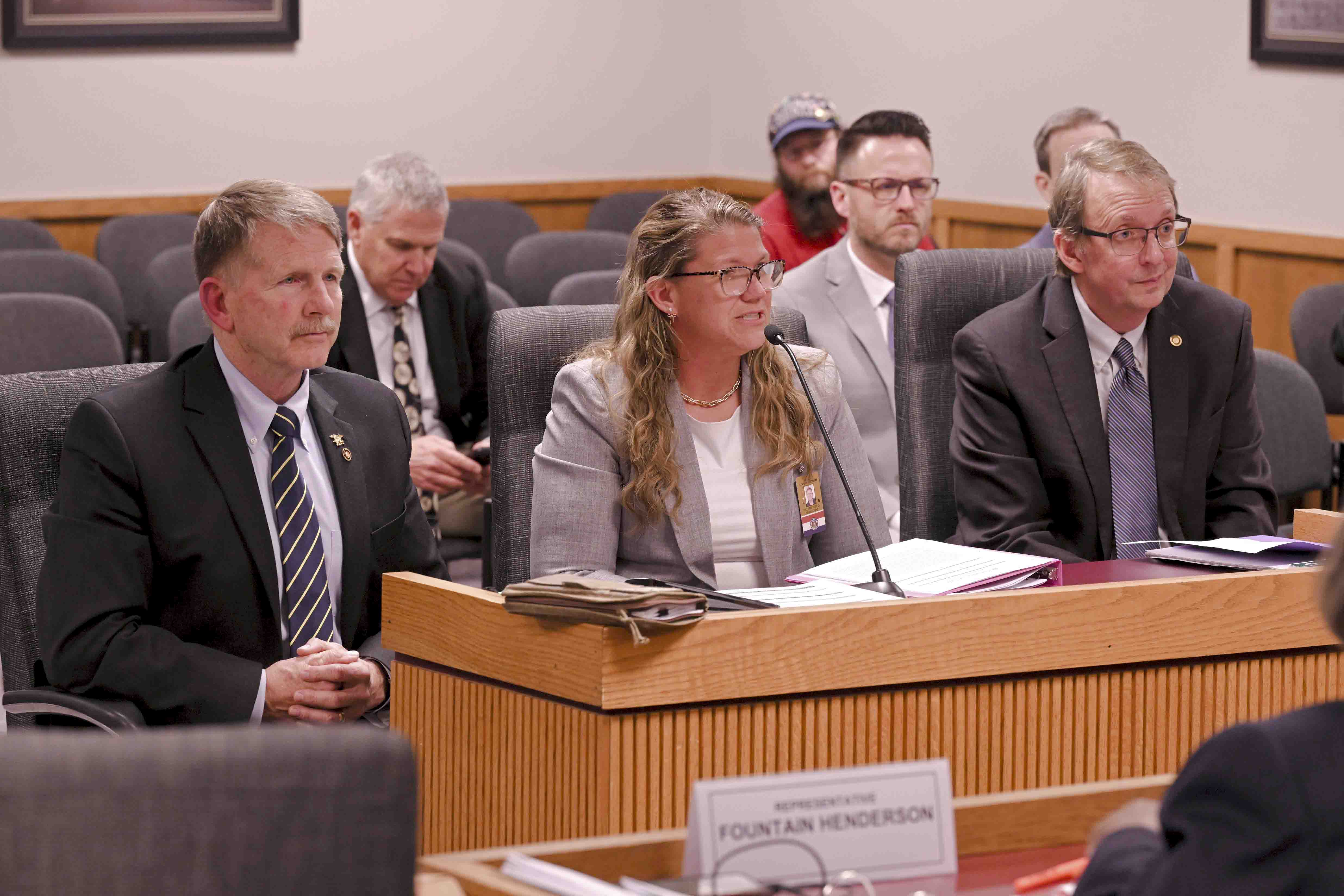
The sponsor of another version, House Bill 293, is Lee’s Summit Democrat Kemp Strickler. He said his first introduction to the issue came from a constituent.
He also referenced a high-profile double murder-suicide that happened in Lenexa, Kansas, in which a woman from Belton, 22 year old Sara Beck, was murdered. Investigators believe she was tracked with a GPS device by her ex-boyfriend.
“The ex-boyfriend also set up a geo-fence that would automatically notify him when she showed up at work, when she showed up at a friend’s house, and when she showed up at home,” Strickler told colleagues.
“This isn’t going to stop it but this will allow us to do something about it when it’s found,” said Strickler.
The House voted 151-0 to send the legislation to the Senate.
